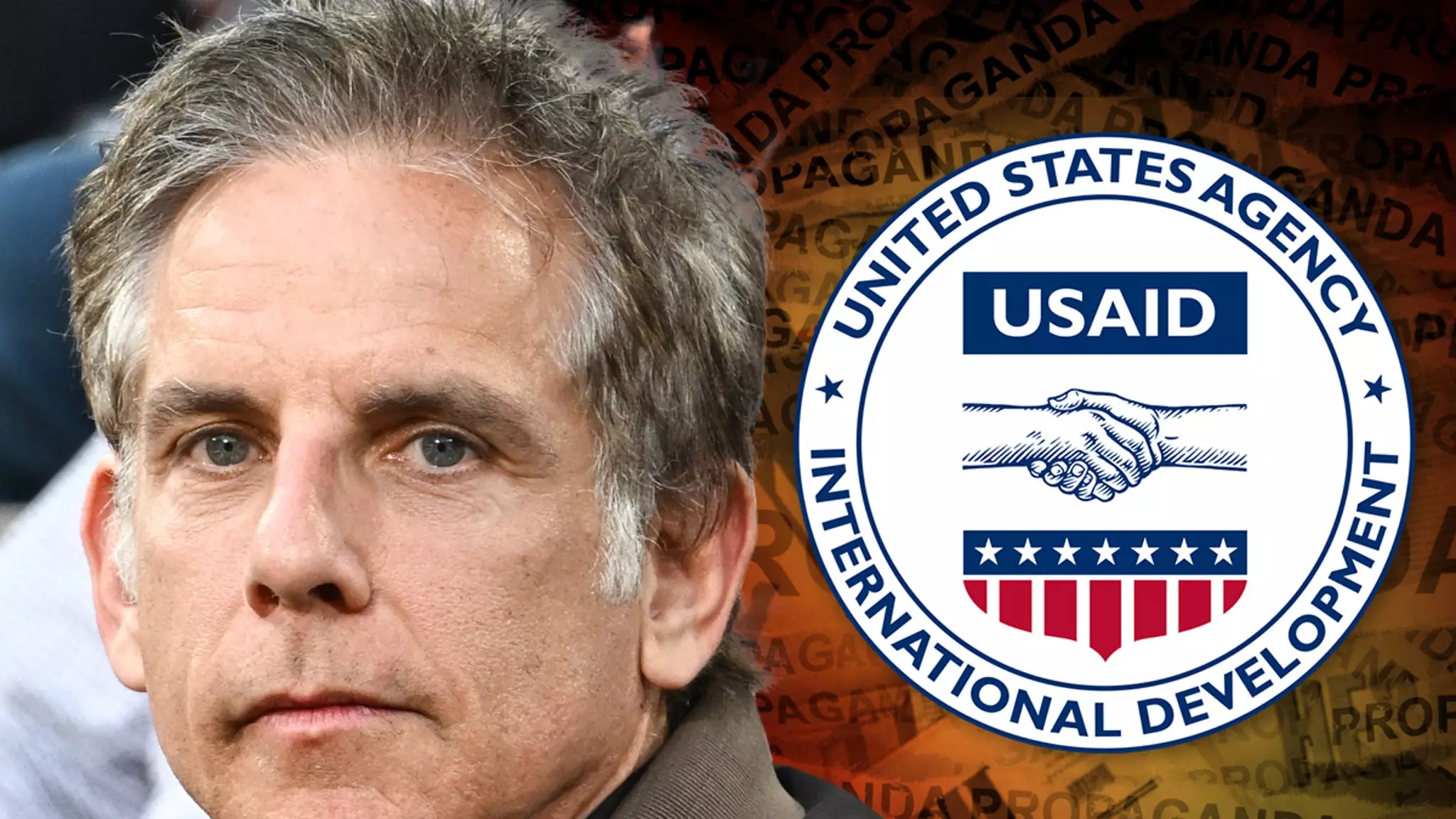Actor and comedian Ben Stiller recently found himself in the crosshairs of misinformation regarding his humanitarian trip to Ukraine. Amid ongoing controversy and conspiracy theories promoted primarily by social media influencers, including Elon Musk, Stiller took to social media to clarify what he described as “totally false” accusations that he was compensated by the U.S. Agency for International Development (USAID) for his travels. In a statement that leaves no room for ambiguity, Stiller asserted, “I completely self-funded my humanitarian trip to Ukraine,” distancing himself from the financial implications that some claimed were linked to his visit.
The origin of the rumors can be traced back to a misleading E! News video that circulated on social media, alleging that several celebrities, including Stiller and notable figures like Angelina Jolie and Sean Penn, were sent to Ukraine on the taxpayers’ dime. The video, which has since been debunked as fabrications, gained traction largely due to its endorsement by prominent individuals within certain political circles, effectively turning it into a point of discussion among followers of their agendas. Stiller’s proactive response emphasizes the actor’s commitment to accurate representation, highlighting the dangerous nature of misinformation, particularly when it concerns humanitarian efforts.
Stiller’s trip to Ukraine is more than just a celebrity gossip headline; it is a reflection of the broader humanitarian crisis faced by the Ukrainian people in the wake of Russia’s invasion. Meeting with President Volodymyr Zelensky, whom he referred to as a “hero,” Stiller’s intentions were purely altruistic. His efforts went beyond merely making an appearance; they included raising awareness about the dire situation facing Ukrainian refugees. The actor’s advocacy extended to a poignant message he recorded for World Refugee Day, urging global communities to come together and support those displaced by the violence.
The Broader Social Media Influence
In an age where social media platforms are playing an increasingly influential role in shaping public discourse, Stiller’s experience serves as a case study of how quickly rumors can spiral out of control. Celebrity endorsements for humanitarian causes often draw attention, but they also attract contentious discussions—often fueled by political narratives. Musk’s outspoken criticism and calls for the dismantling of organizations like USAID have contributed to an environment where misinformation thrives and genuine efforts can be misconstrued.
Ben Stiller’s humanitarian trip, rooted in passion and genuine concern for those suffering from conflict, stands juxtaposed against a backdrop of misinformation and political maneuvering. His insistence on clarifying the truth speaks to the need for greater accountability in the dissemination of information, particularly on platforms ridden with partisan bias. As celebrity figures like Stiller take action, the mustering of public support through accurate information becomes paramount, not just for their integrity but for the causes they represent. In a world where truths can easily be obscured, it is imperative to champion transparency and the humane effort behind such humanitarian appeals.

Leave a Reply